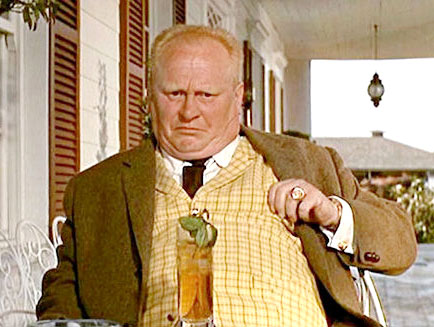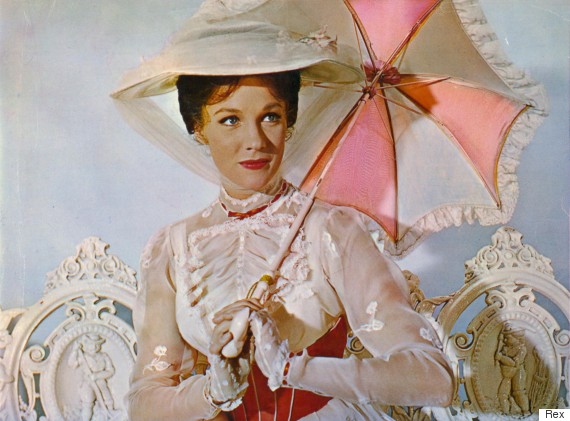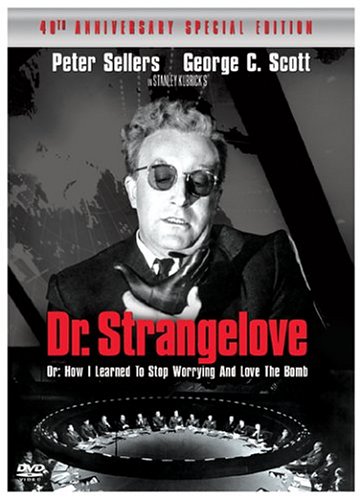 |
| Lila Kedrova: Best Supporting Actress for Zorba the Greek |
TUESDAYS WITH OSCAR: 1964
This war was made particularly vicious given the circumstances involving Julie Andrews. Andrews had originated the role of Eliza Doolittle on Broadway and it was perhaps assumed she would recreate her role in the film adaptation of My Fair Lady as her costar, Rex Harrison was going to do. Warner Brothers, however, was not about to cast an unknown in the lead of their film. Therefore, they passed Andrews over for a bonafide box office draw: Audrey Hepburn. The fact that Hepburn did not sing was irrelevant to Jack Warner. Hepburn desperately wanted to sing in the film, and there are surviving audio tracks of her actual voice singing Wouldn't It Be Loverly?. HOWEVER, Jack Warner (again) thought he knew better...and had professional singer Marni Nixon come in a dub Hepburn.
This dubbing (and the openness about it) always rankled Hepburn, who felt humiliated by it all. This was compounded by the fact that she was compared to Andrews (or worse, endured the suggestion that she had 'stolen' the part).
Another movie mogul, Walt Disney, saw an opportunity in Warner's decision to not cast Andrews and scooped her up for his own musical film based on P.L. Travers' Mary Poppins books. Travers was a nightmare to deal with (Mary Poppins' musical writer Robert Sherman, decades after the fact, referred to her bitterly as 'a witch', though you sensed he wanted to use a similar-sounding word for her). However, the film itself was highly impressive, and come Oscar-time, Andrews received an Oscar for Mary Poppins...and Audrey Hepburn did NOT receive so much as a nomination for My Fair Lady. Was it payback for Hepburn 'stealing' Andrews' role? Was it blowback from the fact that Hepburn didn't sing while Andrews did? It just added to the bad perception Hepburn was receiving, which given her illustrious career and extensive charitable work, was one of the few times she ran afoul of Hollywood and the public.
The war came to a dramatic conclusion the night of the ceremony. My Fair Lady, in terms of actual wins, was the winner (8 wins out of 12 nominations). Mary Poppins, despite being the most nominated, went home with a mere five.
As always this is just for fun and should not be taken as my final decision. I should like to watch all the nominees and winners before making my final, FINAL choice. Now, on to cataloging the official winners (in bold) and my selections (in red). Also, my substitutions (in green).
THE 1964 ACADEMY AWARD WINNERS
BEST ORIGINAL SONG
THE 1964 ACADEMY AWARD WINNERS
BEST ORIGINAL SONG
Chim Chim Cher-ee: Mary Poppins
Dear Heart: Dear Heart
Hush...Hush, Sweet Charlotte: Hush...Hush, Sweet Charlotte
My Kind of Town: Robin and the 7 Hoods
Where Love Has Gone: Where Love Has Gone
Can it be that with two exceptions, none of this year's nominees naturally roll off the tongue? I find Chim Chim Cher-ee a perfectly delightful song...though I confess a near-blinding hatred of Dick Van Dyke. Not as a person, but as a person. I've seen Mary Poppins exactly once...precisely because of Van Dyke, with that damn grin and horrendous Cockney accent. He drives me so crazy that I cannot bring myself to watch The Dick Van Dyke Show or even Diagnosis Murder BECAUSE of that damn goofy grin and incessantly cheerful demeanor. There's one Golden Girls episode where he guest starred which I find an ordeal to sit through. Still, as a song, Chim Chim Cher-ee has stood the test of time and in its way, the Sherman Brothers created a beautiful number.
However, my choice is different, and I choose another nominee.
From Robin and the 7 Hoods, My Kind of Town, music by Jimmy Van Heusen, lyrics by Sammy Cahn.
Robin and the 7 Hoods isn't well-remembered, but Ol' Blue Eyes ode to the Windy City certainly is. It's become a standard and I think a better song than Chim Chim Cher-ee.
HOWEVER, here in 1964, we have TWO much superior songs to Dear Heart and Where Love Has Gone. Sorry.
Goldfinger: Goldfinger
Feed the Birds: Mary Poppins
My Kind of Town: Robin and the Seven Hoods
Send Me No Flowers: Send Me No Flowers
Viva Las Vegas: Viva Las Vegas
From Goldfinger, Goldfinger, music by John Barry, lyrics by Leslie Bricusse and Anthony Newley.
Screw Adele. Screw Sam Smith. Goldfinger is THE Bond Song of ALL Bond Songs, not just the Greatest Bond Song of All Time but one of the Greatest Songs Ever Written for Film. Goldfinger is the standard by which all other Bond Songs are measured to (even with those dreadful back-to-back Bond Themes of Skyfall and Writing's on the Wall, which will fade away within five years from memory. Quick, how does the bridge to Skyfall go...no peeking).
I put it to the snobbishness of the Academy's music branch that something as contemporary and popular as Goldfinger was overlooked come nominating time in favor over the very square and safe Hush...Hush, Sweet Charlotte or Where Love Has Gone. How else to explain not only no nomination for Goldfinger but for another now-classic, Viva Las Vegas?
BEST DIRECTOR
George Cukor: My Fair Lady
Peter Glenville: Becket
Stanley Kubrick: Dr. Strangelove
Robert Stevenson: Mary Poppins
Michael Cacoyannis: Zorba the Greek
Thank Heavens for the Best Adapted Screenplay category. Otherwise, Becket would have the record for the most losses in Oscar history and loses in all the categories it was nominated for. Out of 12 nominations, Becket managed one win, which is a shame since it is a very good film about the conflict between Church and State (personified by the Archbishop of Canterbury and Henry II, former friends turned bitter enemies).
I think even the most passionate Cukor lover would be hard-pressed to say My Fair Lady was his best film (though by no means a bad one). Methinks his win here was more of a de facto Honorary Oscar for Lifetime Achievement, having been overlooked so many times before (four previous nominations dating from as far back as the 6th Academy Awards) and for films he wasn't nominated for (such as Dinner at Eight, The Women, Gaslight, A Star is Born, Camille, and/or Adam's Rib).
This brought about the sad case of making Stanley Kubrick a perennial also-ran. My Fair Lady is a nice, charming film, but Dr. Strangelove is iconic, a Cold War comedy about the end of the world. History, I think, has decided that the young Turk Kubrick outdid the old master Cukor, but for the Academy, stodginess is the order of the day.
William Castle: Strait-Jacket
George Cukor: My Fair Lady
John Huston: The Night of the Iguana
Stanley Kubrick: Dr. Strangelove
Richard Lester: A Hard Day's Night
Certainly, innovation was not high on the Academy's list. Otherwise, why leave out Lester's almost avant-garde directing for A Hard Day's Night? It also wasn't going to reward someone like Castle, who was independent long before independent film was the in thing. I really see nothing to alter my view that Kubrick was the best director for his wild comedy of terrors.
BEST SUPPORTING ACTRESS
Gladys Cooper: My Fair Lady
Edith Evans: The Chalk Garden
Grayson Hall: The Night of the Iguana
Lila Kedrova: Zorba the Greek
Agnes Moorehead: Hush...Hush, Sweet Charlotte
Well, at the moment I really can't find much to argue with when it comes to this category. I just can't.
Diane Baker: Strait-Jacket
Honor Blackman: Goldfinger
Ava Gardner: The Night of the Iguana
Lila Kedrova: Zorba the Greek
Agnes Moorehead: Hush...Hush, Sweet Charlotte
For some time I had put Blackman as my winner for her Pussy Galore. However, my instincts kicked in and thought, maybe that while iconic, in terms of acting, maybe we ought to go with Kedrova, and thus I switched my vote at the last minute.
BEST SUPPORTING ACTOR
John Gielgud: Becket
Stanley Holloway: My Fair Lady
Edmond O'Brien: Seven Days in May
Lee Tracy: The Best Man
Peter Ustinov: Topkapi
Ustinov is an interesting actor in my view. Sometimes I think he's brilliant, sometimes I think he's just a bit on the campy side, hamming it up for all its worth and letting his distinctive voice and diction carry him (Luther is a good example, though in fairness he was already rather elderly at the time). I suppose that when Ustinov was good, he was very, very good, so I'm going to put him here.
Alan Bates: Zorba the Greek
Gert Frobe: Goldfinger
Herbert Lom: A Shot in the Dark
George C. Scott: Dr. Strangelove
Peter Ustinov: Topkapi
That being said, what has become more iconic than Frobe's turn as probably the Greatest Bond Villain, Auric Goldfinger? Perhaps the fact that he was dubbed might make people question this decision, but a.) he didn't dub his acting, and b.) the dubbing has never been an issue for me. Frobe is almost always listed among the Great Bond Villains and with apologies to all the other nominees, he is the one we remember.
BEST ACTRESS
Julie Andrews: Mary Poppins
Anne Bancroft: The Pumpkin Eater
Sophia Loren: Marriage Italian Style
Debbie Reynolds: The Unsinkable Molly Brown
Kim Stanley: Séance on a Wet Afternoon
When Julie Andrews won the Golden Globe for Best Actress in a Musical/Comedy for Mary Poppins, she made the somewhat cheeky comment (in her most gracious British accent) by saying she'd like to thank the man who made all this possible...Mr. Jack Warner. As mentioned earlier, Jack Warner had infamously passed Andrews over to recreate her Broadway/West End role of Eliza Doolittle in the film version of My Fair Lady (while simultaneously bringing Rex Harrison to recreate his). This allowed Andrews to make Mary Poppins. Whether Andrews won because the members thought she gave the best performance or were striking back at Warner's idiocy I cannot say. I will say that out of the five nominated performances, hers is the one that sticks out and is best remembered.
Julie Andrews: Mary Poppins
Joan Crawford: Strait-Jacket
Audrey Hepburn: My Fair Lady
Deborah Kerr: The Night of the Iguana
Kim Stanley: Séance on a Wet Afternoon
Say what you will about Crawford's parenting skills, when it came to her on-screen work, few people have been as committed to any project as she. Even in her more outlandish roles, Crawford went all-in. I have always enjoyed Strait-Jacket, and her performance as the ax murderess who is attempting to keep her sanity and protect her daughter despite a series of recent ax murders is one that is strong and confident. Joan Crawford gave it her all and I think delivered the goods.
BEST ACTOR
Richard Burton: Becket
Rex Harrison: My Fair Lady
Peter O'Toole: Becket
Anthony Quinn: Zorba the Greek
Peter Sellers: Dr. Strangelove
Once again we see two actors from the same film cancelling each other out. There is a strange and sad irony that Burton and O'Toole should find themselves competing against each other since both of them would go on to be among Oscar's greatest losers (O'Toole being the most nominated actor without a win with eight nominations, Burton close behind with seven, but at least O'Toole got one of those Honorary ones as an apology).
I have never found Rex Harrison's work in My Fair Lady to be particularly spectacular. He seemed to be playing himself. Worse, while Hepburn was dragged through the coals for not singing, Harrison was rewarded for essentially the same thing. He, unlike Hepburn, wasn't dubbed, and he, unlike Andrews, recreated his original stage role of Professor Henry Higgins (soon to be played, I'm sure, by that great American thespian, Channing Tatum). However, Harrison was not a singer by any stretch, and Lerner & Lowe had to cater their songs to his non-singing voice by having him 'talk on pitch'. If you watch My Fair Lady, you can see (or perhaps, hear) that he doesn't actually sing, but talks within a melody.
You see this versus Sellers, who plays three different characters: the title role of the mad German (read, Nazi) scientist, the ineffectual American President, and the flustered British officer attempting to stop General Jack D. Ripper from blowing up the world to protect his precious bodily fluids. Interestingly, Sellers was to have played a fourth character, the crazed "King" Kong who drops the bomb while whooping it up (Sellers suffered an injury while shooting and the role went to Slim Pickens). Each character was so well-performed it is a real acting feat.
Again, the Academy went for safe.
Richard Burton: Becket
Sean Connery: Goldfinger
Peter O'Toole: Becket
Anthony Quinn: Zorba the Greek
Peter Sellers: Dr. Strangelove
At the moment, I really don't see anyone topping Sellers, Rex Harrison least of all. At least Rex Harrison wasn't nominated for Dr. Doolittle...talk about bizarre turns.
BEST PICTURE
Becket
Dr. Strangelove
Mary Poppins
My Fair Lady
Zorba the Greek
Well, the Academy shows that it sure loves its old-school musicals. I'm pretty sure Dr. Strangelove, with its wild take on the Cold War and mutually assured destruction, probably shocked some of the older Academy members (some of whom, I suspect, are STILL voting). As a result, they went for the squarest of square choices, the film adaptation of a highly successful and brilliant musical. I figure that perhaps giving the Best Picture Oscar to Walt Disney, who holds the record for the most Oscar wins of anyone (22 wins), would have been too much for members who were loyal to their own studios.
Still, while I like My Fair Lady, I think that when you match the films, Dr. Strangelove is by far the more original and extraordinary work of the two.
With that, I select Dr. Strangelove, or How I Learned to Stop Worrying and Love the Bomb, as the Best Picture of 1964.
Becket
Dr. Strangelove
A Hard Day's Night
Mary Poppins
Zorba the Greek
Again, not a hard choice (though the equally innovate A Hard Day's Night is a tough act to follow). With that, I keep Dr. Strangelove as the Best Picture of 1964.
Next Time, the 1965 Academy Awards.







No comments:
Post a Comment
Views are always welcome, but I would ask that no vulgarity be used. Any posts that contain foul language or are bigoted in any way will not be posted.
Thank you.